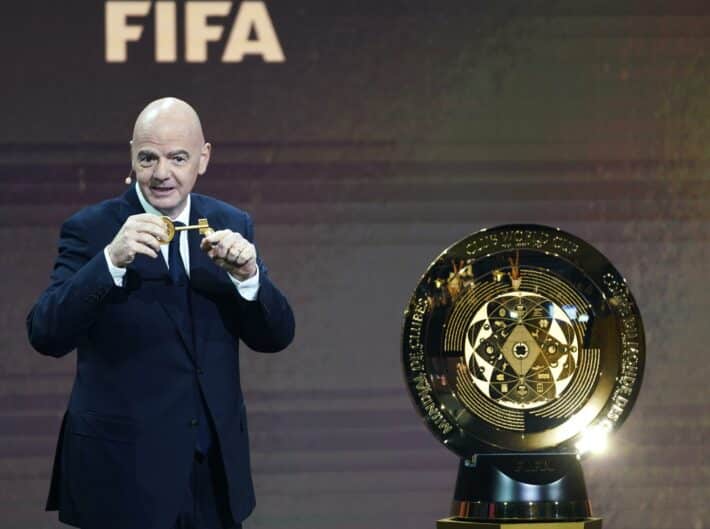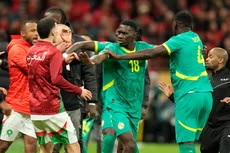Club World Cup: Gianni Infantino expresses regret over George Weah’s missed global stage

FIFA President Gianni Infantino has expressed deep personal regret that football legend George Weah never had the opportunity to feature on the global stage during his playing career, as he continues to champion the expanded Club World Cup format as a transformative step for world football.
Speaking in an interview with DAZN, the official broadcaster of the new Club World Cup, Infantino highlighted the importance of the 32-team tournament, while taking a moment to pay tribute to his close friend and former Liberia captain, George Weah — the first and only African player to win the Ballon d’Or.
“George Weah is a dear friend and an absolute legend of the game,” Infantino said. “He reached the pinnacle of individual football recognition, winning the Ballon d’Or, but unfortunately, he never had the chance to play in a FIFA World Cup with his national team.
A tournament like the expanded Club World Cup, had it existed during his time, would almost certainly have offered him the global platform he deserved.”
Infantino’s comments underscore his conviction that the new format of the Club World Cup, which expands the competition to 32 teams, is more than just an administrative change.
For him, it represents a significant step forward in levelling the playing field for clubs and players from every corner of the footballing world.
“We are creating a tournament that stands shoulder to shoulder with the UEFA Champions League and the English Premier League,” Infantino said.
“The moment the first whistle blows in this new format, it will be clear that we are witnessing a historic evolution in football. It’s not just about prestige—it’s about access, visibility, and legacy.”
The revamped Club World Cup, scheduled to debut in the near future, will feature the world’s top clubs from various confederations, offering players who might otherwise never experience such a stage the chance to compete in an elite global competition.
Infantino also addressed the significant commercial expectations surrounding the tournament. He projected that the Club World Cup will generate close to $2 billion in revenue, with individual matches valued at approximately $30 million each.
These figures reflect FIFA’s ambition to create a financially sustainable and globally appealing tournament that can rival the biggest names in the sport.
But beyond the numbers, the FIFA President returned to his central point: the human element, and the players whose talents often go unseen due to the structural limitations of current international competitions.
“In today’s global football ecosystem, we must ensure that brilliance isn’t confined to only a few markets or regions,” Infantino added. “Players like George Weah, who inspired millions but missed out on the biggest stages, should serve as a reminder of what more inclusive tournaments can offer.”
The message is clear: through the expanded Club World Cup, FIFA hopes to not only bring commercial success and competitive balance, but also to honour the legacy of players past by ensuring future generations have every opportunity to shine on the world stage.




